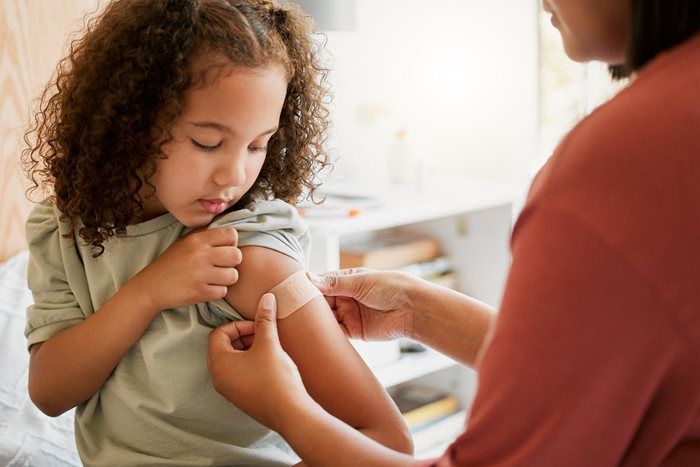Why Are Some Vaccines Given as Multiple Doses?
As a parent, it can be tough to watch your child receive multiple shots. You know that they need them and they provide protection from harmful viruses and bacteria. But knowing that a shot can make your little one uncomfortable – or worse, cry – is hard to handle.
It’s no wonder why parents sometimes question why some immunizations have to be given twice, or even three times.
This article explores why some
vaccines are given in multiple doses.
How Do Vaccines Work?
Vaccines work by giving your immune system a little boost, helping it to recognize potential threats and learn to fight against them. Getting infected with these preventable infections can have dangerous consequences that may lead to life-long disabilities or even death.
With the help of vaccines, you can eliminate or minimize the impact of these things on the body.
So, how do they work? A vaccine contains an antigen that triggers the body’s natural defenses to respond as if it were fighting the actual infection. This can be a bit of protein or a weakened version of a virus. In response to its presence, the immune system produces antibodies that will be ready to fight should the
real infection appear down the road.
Over the years, many vaccines have been developed to help keep kids – and adults – safe from so many harmful situations. A few of the most important vaccines for children throughout the United States include polio (IPV), meningitis (three different types), measles, mumps, and rubella (MMR), chickenpox (varicella), and influenza. A list of recommended vaccinations based on age can be found
here on the CDC’s web page. And, if you don’t understand what a vaccine is, it is always ok to ask.
Why Are Some Vaccines Given in Multiple Doses?
There are 2 primary reasons we require multiple doses of vaccines. First, to learn how to fight off certain infections, our immune system needs repeat reminders spread out over months or years. This is why infants receive so many repeat vaccine doses in their first several months.
Secondly, with some vaccines, our protection can wane over the years. Those that contain live antigens (like measles, mumps, and rubella) can provide longer protection with just two doses, but vaccines that have non-live antigens create protection that will dissipate as time passes, requiring additional doses to protect against the danger. This is why we all need tetanus boosters every 10 years. There is also a growing recognition that the immune system of older individuals weakens, so they need boosters to prevent shingles, pneumonia, and meningitis.
Seasonal vaccinations, such as the flu vaccine and COVID-19, are new each year to protect against new strains or mutations of the virus. This gives the best protection.
Tips For Making Vaccine Visits Less Stressful
Getting shots is something that many kids fear. Thankfully there are a few things you can do to prepare your child for their immunization appointments.
- Bring your child’s favorite stuffed animal or toy
- Play a game, call your child’s name, or otherwise engage your child to distract them
- Speak calmly to your child about what to expect using age-appropriate language
- Ask your pediatrician about pain-relieving ointment or spray
- If your child is breastfeeding, this can be a stress-free distraction
- With older kids, practice breathing techniques
After the appointment, be sure to comfort your child and let them know you are proud of them for getting through it so well.
Is Your Child Due For Vaccinations?
At Advocare Haddon Pediatric Group, your child’s health is our top priority. We understand how important immunizations are for overall health and wellness — and we want you to, too.
Contact us today to schedule an appointment at one of our convenient office locations:
Mullica Hill: 856-294-5600
Haddon Heights: 856-547-7300











